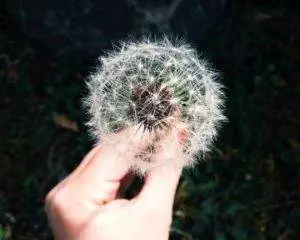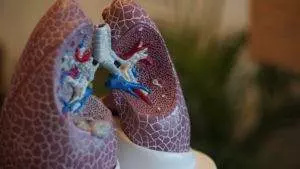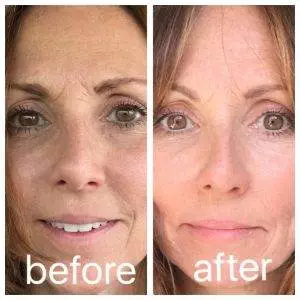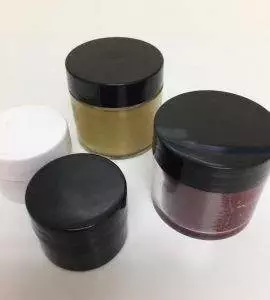-
 Art of Wellness Acupuncture & Traditional Chinese Medicine (TCM)11704 Wilshire Blvd, Suite 295, Los Angeles, CA, 90025
Art of Wellness Acupuncture & Traditional Chinese Medicine (TCM)11704 Wilshire Blvd, Suite 295, Los Angeles, CA, 90025
myartofwellness@gmail.com310-451-5522 Office Hours
MonClosedTue7:30 am --4 pmWed7:30 am --4 pmThu7:30 am -- 4 pmFri7:30 am -- 4 pmSat7:30 am -- 4 pmSunClosedOur office opens from Tuesdays to Saturdays 7:30 am to 4 pm, will be closed on Memorial day, Independent day, Labor day, Thanksgiving day, Christmas and New year.
-
Recent Posts
- Acupuncture and TCM Treatment for Perimenopause Symptoms
- How to Treat Insulin Resistance With Acupuncture and TCM
- How to Treat Metabolic Syndrome With Acupuncture and TCM
- How to Treat Syncope With Acupuncture and TCM
- How to Treat Thoracic Outlet Syndrome With Acupuncture and TCM
- How to Treat Dupuytren’s Contracture With Acupuncture and TCM
- How to Treat Nutcracker Syndrome With Acupuncture and TCM
- How to Treat Rosacea With Acupuncture and TCM
- How to Treat Perioral Dermatitis With Acupuncture and TCM
- Lymphatic Drainage With Acupuncture and TCM
- How to Treat Turf Toe With Acupuncture
- How to Treat Nerve Pain With Acupuncture and TCM
- How to Treat Watery Eyes With Acupuncture and TCM
- How to Treat Ovarian Cysts With Acupuncture and TCM
- How to Treat Dystonia With Acupuncture and TCM
- Can Acupuncture Help Bad Breath?
- Sign up to receive news and updates and get my free report:“The Top 10 Reasons to Try Acupuncture”

October 2025 M T W T F S S 1 2 3 4 5 6 7 8 9 10 11 12 13 14 15 16 17 18 19 20 21 22 23 24 25 26 27 28 29 30 31
Allergies
How to Treat Allergy With Acupuncture and TCM

By Xiaomei Cai, L.Ac., Ph.D., & Qineng Tan, L.Ac., Ph.D.
Sinus congestion, runny nose, watery eyes? Itchy skin problem or rashes? It may be seasonal allergies, or an allergic reaction to some specific food or chemical. Acupuncture and TCM herbs can not only help to relieve allergy symptoms, but help to strengthen the body’s immune defenses, so that it is less vulnerable to allergens in the environment.
An allergy is when your immune system produces an antibody response to some substance; it could be a reaction to a plant pollen, an insect venom, a chemical in the air, or some type of food. The body is perceiving the foreign substance as a threat and manufactures antibodies to fight against it. A runny nose (rhinitis), watery eyes, itches in different parts of the head and body, and sneezing are the body’s way of trying to throw off the triggering allergens. Allergies can also cause asthma, which is when the body reacts to triggers with inflammation in the lungs and bronchial tubes, leading to coughing, wheezing, and difficulty breathing.
At least 50 million Americans experience some form of allergy symptoms every year, and the number is growing. The ever-increasing amounts of food additives, chemical pollutants, and other triggers in the environment are causing more and more people of all ages to develop allergies. TCM and Acupuncture have been recognized for a while by the WHO as helpful modalities to relieve respiratory illnesses, including seasonal allergies, rhinitis, sinusitis, and allergy-related asthma.
Top 5 Types of Allergies

Different types of allergies create a variety of symptoms. Seasonal allergies only show up at certain times of the year, when a particular pollen or other natural trigger is abundant, while chronic allergies can flare up at any time.
- Pollen Allergies – these are often referred to as “seasonal allergies,” or “hay fever,” and are triggered by natural pollens given off by trees, weeds, grass, and flowers or mold spores, pet dander. These types of allergy cause sneezing and runny nose (rhinitis) and eye allergies, or itchy, watering eyes.
- Insect Allergies – these can refer to the types of acute allergic reactions people have to bug bites (mosquito bites or spider bites) or stings from bees or wasps. It can also refer to respiratory or skin reactions to exposure to dust mites or cockroaches in the home environment.
- Skin Allergies – these include acute skin allergies like the hives or rashes caused by poison ivy or poison oak. They also include skin reactions to latex. Eczema is a more chronic skin allergy condition, where inflammation causes itchy patches of skin that can become very dry and scaly. Dermatitis or eczema often start in childhood. Flare-ups can happen due to external irritants, like certain soaps or detergents, fabrics, ingredients in topical ointments or lotions, or smoke in the air. Stress is also a contributing factor to eczema.
- Food Allergies – food allergies are especially common in children, with over 5% of children in the U.S. diagnosed in recent years. Certain types of nuts, dairy, soy, wheat, and shellfish are the most common food allergens. In some cases, food allergies are so severe that exposure can lead to a life-threatening reaction of anaphylaxis, an emergency situation in which blood pressure can slow down dramatically, and a person may have severe difficulty breathing. Every year, 200,000 people seek emergency medical care for a severe food allergy reaction.
- Drug Allergy – many people have allergic reactions to certain types of medication, including antibiotics, anti-inflammatories, ACE inhibitors, anti-seizure medications, and even aspirin. The most common symptoms of an allergic reaction to medication are: hives or rash, fever, stomach upset, or asthma-like wheezing. A severe drug allergy can also cause anaphylaxis.
Allergy treatment first involves finding out exactly what allergens will potentially cause a reaction. Allergy testing helps determine what, specifically, is triggering the symptoms. Then, a person is encouraged to avoid this trigger as best they can. Many people try over the counter antihistamines, decongestants, and nasal sprays to help manage their allergy symptoms. For more severe allergies, doctors may prescribe corticosteroids in spray, pill, or ointment formulations. Epinephrine injections are necessary to stop severe reactions and prevent anaphylactic shock.
Immunotherapy is an option for some people with a chronic allergic condition. A small amount of the allergen is introduced into the body either via injection (allergy shots) or in a sublingual (under the tongue) form. These can help people build us a better resistance to the allergy trigger over time.
How Can Acupuncture Help Seasonal Allergies?
Modern medical science has made many recent advances in understanding of the human body’s immune system. It is highly complex, and there is still much to learn. In TCM, we have for many centuries been aware of and observed what we call “Wei Qi,” which essentially means protective energy.

TCM always acknowledges dualities and the relationship between opposing and coordinating forces. In every case, we look for internal factors and external factors that are affecting the health of the person. In TCM, the immune system has both internal and external components. The external Wei Qi is a protective force that functions as a shield, blocking external pathogens like wind, dampness, and cold, from entering into the body. The lungs provide the energy to keep Wei Qi strong and especially to keep pathogens from entering through the nose and mouth. However, when Wei Qi is weak, it becomes easy for Wind to enter the head and bring with it other external pathogens, like cold, heat, dampness, or dryness.
According to TCM, a person who suffers from allergies generally has a deficiency of Wei Qi, making them more susceptible to invasions of Wind. Acupuncture treatment might focus, for example, on strengthening the lungs and spleen, which helps to build the Wei Qi back up. Herbal remedies can both relieve hay fever symptoms and rhinitis, and help to tonify the Wei Qi, so that allergic reactions will lessen over time.
One trial found that people were able to reduce their use of allergy medication after an eight-week course of acupuncture treatment for allergies. Another research study found that patients in a control group who received acupuncture reported better control of allergy symptoms during pollen season, with less reliance on antihistamines.
TCM and Acupuncture for Food Allergy
Recent research supports the efficacy of TCM herbs for helping to prevent severe reactions in people who suffer from food allergies. A specific formulation of eight Chinese herbs has been shown to be helpful for reducing the incidence of anaphylaxis in people with various types of food allergies, including milk, dairy, peanuts, tree nuts, and fruits. Herbal creams and herb bath preparations can also help prevent severe reactions, when used consistently for a course of treatment.
An acupuncture practitioner will also use their wide knowledge of nutrition to help patients with Celiac disease, food sensitivities and food intolerance manage their diet. Often, when dealing with allergies and sensitivities, it can be challenging to find what needs to be eliminated, as it is not always immediately obvious to a person which foods or other environmental factors are involved in creating the uncomfortable symptoms. Sometimes a chronic allergy is a sign of a candida infection. A TCM doctor will spend time looking carefully at all of the lifestyle behaviors involved and make appropriate recommendations to help remove hidden triggers.
Top 3 Tips to Help Allergies Naturally
Getting regular acupuncture “tune-ups” is one great, natural way to help relieve allergies. Here are some other ideas you can put into practice to help rid your home and work environment of potential allergens.
- Air Filter – a good-quality HEPA filter will remove particles of pollen, dust, and pet dander from the ambient air. This works best if you also make sure to keep the windows and doors closed when you suspect pollen is heavy in the air outside.
- Probiotics – a recent systematic review showed that taking probiotics can help reduce symptoms of allergic rhinitis. Probiotics help balance gut flora, which we now know is vital to proper immune functioning and prevention of inflammation.
- Wash Your Hands – Manage allergens that come home with you by washing your hands and putting your clothes in the laundry as soon as you get home.
Acupuncture Near Me for Allergy Relief
Seasonal allergies, food allergies, and allergies to chemicals and medication are all on the rise. While people are able to get some relief from conventional medications, TCM treatment offers a viable alternative without the possible side effects of these medicines. Acupuncture can help reduce the need for emergency treatment for severe allergic reactions, and also help prevent hay fever from recurring, year after year. Partner with an acupuncturist near me for allergy treatment now to ensure that when allergy season rolls around again, you are prepared with a strong defense.
*This article is for education from the perspective of Traditional Chinese Medicine only. The education provided by this article is not approved by FDA to diagnose, prevent, treat and cure human diseases. It should not stop you from consulting with your physician for your medical conditions. Traditional Chinese Medicine is based on Qi, which is an invisible force that usually cannot be observed by modern science. Because science focuses on testing ideas about the natural world with evidence obtained through observation, these aspects of acupuncture can’t be studied by science. Therefore acupuncture and Chinese herbs are often not supported by double-blind, randomized trials, and they are considered alternative medicine therapies in the United States.
How to Treat Asthma With Acupuncture and TCM
By Qineng Tan, L.Ac., Ph.D. & Xiaomei Cai, L.Ac., Ph.D.

Difficulty breathing? Could it be seasonal allergies, or could I have asthma? Asthma symptoms include shortness of breath, wheezing, and an allergy cough that is usually more pronounced in the morning and evening. Acupuncture and TCM have long been recognized as offering effective treatment for allergic rhinitis (hay fever) related to asthma.
Asthma, a chronic lung condition which creates inflammation of the airways of the respiratory system, often begins causing breathing problems in childhood. In fact, asthma is the most common chronic disease affecting children worldwide. Sometimes asthma symptoms go away as a child grows up, but asthma can affect both children and adults long-term.
What is an asthma attack? An asthma attack occurs when the bronchial tubes become constricted. The tightening of muscles around the bronchi, combined with inflammation on the inner walls of these airways, causes shortness of breath, chest pain, coughing, and wheezing. Asthma attacks can be profoundly frightening; sometimes people describe the experience as feeling like they’re drowning.
Allergy triggers like dust mites and ragweed often cause asthma symptoms to flare up. Asthma attacks are often triggered by the same sorts of things that cause other types of allergic reactions: high pollen counts, pet dander, chemical perfumes, or smoke. An asthma attack can also be caused by changes in temperature, strong aerobic exercise, or a bout of intense crying or laughing. A viral respiratory infection can also trigger asthma.
Asthma attacks due to seasonal allergies are often managed by conventional medicine with inhalers, corticosteroids like methylprednisolone, or antihistamines like Zyrtecs. Usually doctors will prescribe a medication intended for long-term management of symptoms, and a “rescue inhaler” designed to stop an asthma attack in progress. Allergy medications can help relieve hay fever symptoms like itchy eyes and sneezing and help prevent a full-blown asthma attack, but they do not address the immune system imbalances that are the root cause of asthma and allergies. Acupuncture treatment used in addition to standard medical remedies for asthma has been clinically shown to help reduce symptoms and improve overall quality of life. Along with helping people maintain their normal activities and sleep better, TCM methods used in conjunction with conventional medical therapy can reduce the need for trips to the emergency room or hospital for asthma attacks.
Can asthma be cured? Asthma may never go away completely, but it can be managed so effectively that it no longer has a negative impact on your life.
Top 5 Asthma Symptoms
Asthma symptoms often begin appearing during childhood, but asthma can come on at any age. When a person develops asthma later in life, it is called “adult onset asthma.” Sometimes people don’t realize they have asthma because they aren’t experiencing what they think of as the classic “asthma attack.” A persistent cough, especially one that gets worse at night, is actually one of the most pervasive symptoms of asthma. Other symptoms of asthma include:
- Coughing frequently, allergy cough
- Wheezing (that whistling sound when you breathe)
- Shortness of breath (having trouble drawing a full breath)
- Rapid breathing
- Chest tightness, breathing chest pain
Why is asthma worse at night? The precise reason for the increase of asthma symptoms during the night, known as “nocturnal asthma,” has not been medically proven, but it is probably due to a combination of factors:
- Cooler air entering the bronchial passages
- Increase of allergens like pollen in the air
- Exposure to dust mites or pet dander in the bed
- Reclining sleep position makes it harder to breathe
- Hormone secretions that occur during sleep
Nighttime asthma can really affect your ability to get enough quality sleep.

Many of the symptoms of asthma are similar to those of an allergic reaction. However, seasonal allergies usually also cause symptoms like: head congestion, runny nose, itching inside the mouth, throat, and ears, sinus pain, and postnasal drip. Asthma doesn’t cause these sorts of upper respiratory symptoms because it is a condition of the lungs and bronchial tubes.
In order to make a definitive diagnosis of asthma, a doctor will usually perform tests that determine your lung function. A spirometer is a tool that helps determine how much air you are able to inhale and exhale. If you are able to inhale better after being given medication from an inhaler, then it will be concluded that you probably have asthma. An x-ray can show whether the bronchial tubes are blocked and determine whether there might be some other cause for lung damage, such as pneumonia or tuberculosis. Often people will also be given allergy testing to determine what triggers may affect their breathing.
Can Acupuncture Help Asthma?
Asthma has been recognized by TCM since ancient times. We call asthma “Xiao Chuan,” which means “wheezing, breathlessness.” According to TCM theory, the lungs control inhaling, while the kidneys control exhaling. Lung Qi (energy) should move downward, while Liver Qi should move upward, and these energies work in harmony. Asthma is the result of one or all of these energies entering into a state of imbalance or deficiency. Excess wind and/or phlegm get trapped in the lungs and airways, creating obstructions and producing the wheezing and shortness of breath associated with asthma. Acupuncture treatment focuses largely on strengthening the kidneys and lungs, and clearing phlegm and wind from the system.
One study determined that acupuncture treatment reduced “respiratory resistance,” helping to open up the bronchial tubes. A study in Denmark focused specifically on young children with asthma showed that symptoms and need for medications was reduced significantly after ten acupuncture treatments. A systematic review of nine studies involving patients using TCM as a complementary therapy in addition to conventional treatment showed an overall improvement in asthma symptoms and concluded that acupuncture should be considered as an adjunct to medications.

As always, herbal supplementation is also a crucial component of TCM treatment for asthma and allergies. Research has shown that classic TCM herbal formulations for asthma provide many therapeutic benefits, including: reducing hyperreactivity in the bronchial tubes, reducing inflammation of the lungs and tubes, and calming muscle contractions around the airways. One study specifically focused on children with asthma concluded that patients who were given a specific TCM herb combination showed significant improvement over a 12-week period when compared to a control group of children who received a placebo instead.
Asthma attacks are genuinely frightening, and when severe, can even be life-threatening. It is important that people with asthma have emergency inhalant medications to help them in the event of a serious asthma attack. However, the regular use of steroid medications comes with other risks. Corticosteroids can suppress normal immune function, affect the adrenal hormones, and actually increase inflammation. These unwanted side effects may be especially concerning for young children with asthma. Chinese herbs offer a safe alternative to steroids, having been used for thousands of years with no negative side effects.
Top 5 Tips to Help Control Asthma
It’s important to seek health care for managing asthma, but there are home remedies for shortness of breath and natural remedies for wheezing that may help you take control of asthma attacks and help you sleep better without an asthma coughing attack in the night.
- Don’t smoke, and avoid other people who do. Stay out of places where there is second-hand cigarette smoke or other ambient smoke or chemical perfumes.
- Use a high quality air filter in your home. Keep dust and mold under control. Remove old carpets and any other fabrics that might have dust mites in them.
- Manage stress. Stress and anxiety can be triggers for asthma attacks. Regular acupuncture treatment will help, as will consistent practice of meditation and breathing exercises.
- Avoid dairy products. Milk and other dairy foods are notorious for creating congestion and irritating the airways.
- Drink warm, soothing liquids throughout the day. Tea and warm honey-lemon water keep the airways moist and open, while providing immune-boosting properties.
Acupuncture Near Me for Asthma
The benefits of acupuncture treatment are cumulative. Building a strong and consistent partnership with a TCM provider can help you to manage asthma and allergy symptoms, boost your overall immunity, and prevent other health problems from developing. If you or someone you know has breathing problems, allergies, or food sensitivities, call Art of Wellness today to get started with a wellness regimen that will have you breathing easier.
*This article is for education from the perspective of Traditional Chinese Medicine only. The education provided by this article is not approved by FDA to diagnose, prevent, treat and cure human diseases. It should not stop you from consulting with your physician for your medical conditions. Traditional Chinese Medicine is based on Qi, which is an invisible force that usually cannot be observed by modern science. Because science focuses on testing ideas about the natural world with evidence obtained through observation, these aspects of acupuncture can’t be studied by science. Therefore acupuncture and Chinese herbs are often not supported by double-blind, randomized trials, and they are considered alternative medicine therapies in the United States.
Go Beyond Skin Deep with TCM
by Xiaomei Cai, L.Ac., Ph.D.
“The qi of the five zang organs manifests in the face. . .if we see green like jade, red like the crown of a rooster, yellow like the underside of a crab, white like the lard of a pig, or black like the feathers of a black chicken, these are the colors of life.”
– The Yellow Emperor’s Classic of Medicine
A practitioner of Traditional Chinese Medicine can tell a lot about your health from your face and your skin. In TCM, each of the organ systems corresponds to one of the sense organs; so the appearance and function of the eyes, nose, mouth, ears, and eyes can give the doctor information about what might be going on in the liver, heart, intestines, and other major organs. Conversely, problems in the liver, etc., will show on your face. The skin is considered the “opening” of the lungs; this is why problems with environmental toxins often display themselves through skin conditions such as eczema, rashes, psoriasis, hair loss, acne, dullness or roughness.
In other words, we know that health, and beauty, are not only “skin-deep.” The skin’s surface and the life of the facial features give us clues as to what is going on underneath. The skin reflects imbalances of the internal landscape of the body. Stress and strong emotions, hormone imbalances, inappropriate dietary habits and environmental influences all will be represented on the skin, our largest organ. We must treat the underlying conditions deep within the body first, then we will see the skin bloom with health. Any skin condition is like a red flag showing that there are some impurities or toxins building up inside. Normally, our bodies can self-clean; our liver and kidney filter all impurities out. But if there are too many toxins, or the body is under a lot of stress –eg., not enough sleep, or lacking in regular “tune-ups,” just as a car needs maintenance at regular intervals–, then the problems build up and break outs occur.
For example, conditions such as scaling psoriasis and rosacea are often caused by excess internal heat, especially that which we call Stomach Fire, so our acupuncture and herbal treatments will be designed to clear the heat, along with dietary changes, such as avoidance of alcohol, coffee, sugar, and red meat (all of which we recommend avoiding, anyway). Western medicine will often treat these conditions with cortisone, which may suppress the some of the symptoms for the duration of use, but it will not address the root cause. Long-term use of cortisone can have very detrimental effects on your overall health.
Hives – itchy, red patches that come and go – are considered by Western medicine to be caused by histamine reactions, and are almost always treated with antihistamines. In TCM, they are considered a “wind rash;” like wind, they can be cold or hot, and can move from one place to another quickly. This signals a weakness in the exterior immune barrier that your skin provides, and that you are extra susceptible to stress and/or allergens in your environment. Balancing the excess heat or cold in the body with acupuncture treatment, discovering where the irritants are coming from and altering your diet, hygiene regimens, etc. can alleviate the hives, and also strengthen your overall immunity.
Eczema, or dermatitis, can show up in many forms, but they are all due to imbalances in the body caused by toxic buildup from both external and internal sources. Again, stress and hormones play a role, as do the plethora of artificial toxins in our environment. The body’s own immune response to this constant bombardment of toxins can cause skin irritations. Our strategy might include building up deficient blood with more nutrients, clearing dampness, and prescribing cleansing herbs and foods.
Acne – pimples or lesions that break out on the skin’s surface – is not a superficial problem. It is always related to things that are going on internally, often with the digestive system. Improper diet or imbalances in hormones lead to inflammation that is “overflowing,” and, having nowhere else to go, erupts out of the body through the skin. Making appropriate modifications to your food program and balancing hormones will clear the acne for good, where topical solutions and birth control pills provide only temporary improvement.
If aging is your concern, we are able to choose specific points for an acupuncture facial, which tightens and tones the skin and boosts the production of collagen. This treatment will help smooth fine wrinkles, improve circulation, and hasten healing of any acne, rosacea, and other skin irritations. Acupuncture also releases endorphins, which make you feel more relaxed and positive. Most people find acupuncture treatment painless and relaxing. You can see a difference after just one or two treatments, but the benefits keep growing, as the results are cumulative.
Why choose acupuncture over modern dermatological procedures? If you are looking for treatment that is natural,with natural-looking results and no or minimal negative side effects, it is worth a try. If you come with a skin condition, we will conduct a full consultation to determine which organ system has an imbalance and offer acupuncture treatment to improve Qi flow, cupping to get rid of deep tissue toxins and activate the lymphatic system to clean the internal organs, herbal therapy to clear heat, and dietary suggestions to prevent the skin condition from coming back.
7 Reasons to Seek Out Acupuncture

Do you ever feel your life’s a ride that won’t ever stop? How many nights do you wait for Mr. Sandman to magically appear? How often do you truly take time for yourself? Do you have aches and pains almost daily? Are over-the-counter or prescription medications controlling your life? When was the last time you actually felt at peace? If any of these questions resonate with you, then it might be time to look at Traditional Chinese Medicine and acupuncture for an answer. People in Asian countries have known the magnificence of acupuncture for thousands of years. Traditional Chinese Medicine is growing in popularity in the United States and here are some reasons why you might want to consider utilizing it also. continue reading